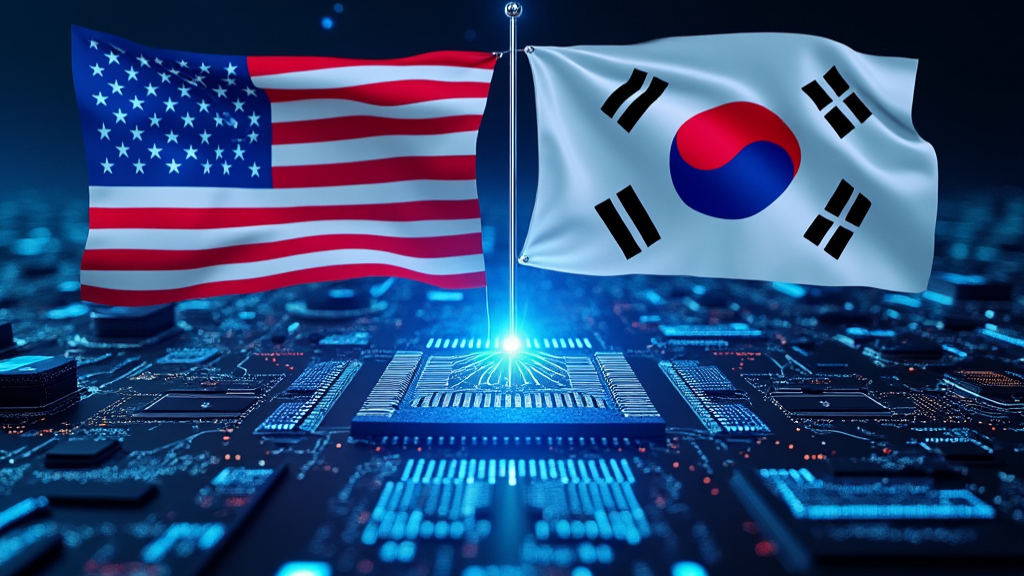
In a significant move to bolster technological prowess and security, the United States and South Korea have expanded their cooperation in quantum technology, marking a new chapter in their defense partnership. This collaboration comes at a time when both nations are looking to harness cutting-edge technology to maintain strategic advantages amidst global technological races.
Quantum Leap for Defense
The partnership leverages the inherent capabilities of quantum technology, which promises unprecedented advancements in computing power, secure communications, and sensing technologies. Quantum technology, due to its ability to process information at scales previously unimaginable, is seen as pivotal in areas like cybersecurity, navigation systems, and even military intelligence.
Details of the Agreement
- Joint Research Initiatives: Under the agreement, both countries will enhance joint research programs. This includes personnel exchanges, sharing of methodologies, and data cooperation in quantum information science and technology (QIST), aiming to cultivate a next-generation workforce skilled in these areas.
- Educational and Public Awareness: The initiative also focuses on educational programs to increase public awareness and encourage participation in quantum sciences. This involves not only traditional academic pursuits but also apprenticeships and interdisciplinary training programs.
- Strategic Implications: This enhanced partnership is part of a broader strategy to counterbalance technological advancements by potential adversaries, particularly in regions where geopolitical tensions are high, like the Korean Peninsula.
Statements from Leaders
Dr. Arati Prabhakar, Director of the White House Office of Science and Technology Policy, remarked, “This partnership underscores our commitment to lead in quantum technology, ensuring that our alliance not only remains robust but also innovative.”
Dr. Lee Jong-ho, South Korea’s Minister for Science and Information and Communication Technologies, added, “Our cooperation in quantum technology will not only enhance our defense capabilities but also foster a new era of scientific collaboration between our nations.”
Broader Context
This development builds on previous agreements and follows the trend of international alliances where technology sharing is pivotal. For instance, the trilateral quantum partnership involving Japan, South Korea, and the U.S. has set a precedent for such cooperative efforts in the region. Moreover, recent posts on social media platforms like X have highlighted the extension of the U.S.-South Korea defense pact to include cyber warfare and space, indicating a holistic approach to defense that now includes quantum tech.
Future Prospects
The outcomes of this collaboration could lead to breakthroughs in quantum sensors for military applications, quantum communication for secure channels, and potentially quantum computers for solving complex military logistics or cryptographic challenges. The partnership is also expected to stimulate economic growth through innovation in the tech sector, benefiting both countries’ economies beyond just defense applications.
As the world watches, the U.S. and South Korea are positioning themselves at the forefront of quantum technology, not just for strategic military purposes but as leaders in what could be the next industrial revolution. This move could redefine defense strategies, making quantum technology as integral to national security as traditional weaponry.
Conclusion
This enhanced cooperation in quantum technology between the U.S. and South Korea is a testament to their commitment to not only defend but also to innovate, ensuring their alliance remains dynamic in an ever-evolving global technological landscape.




